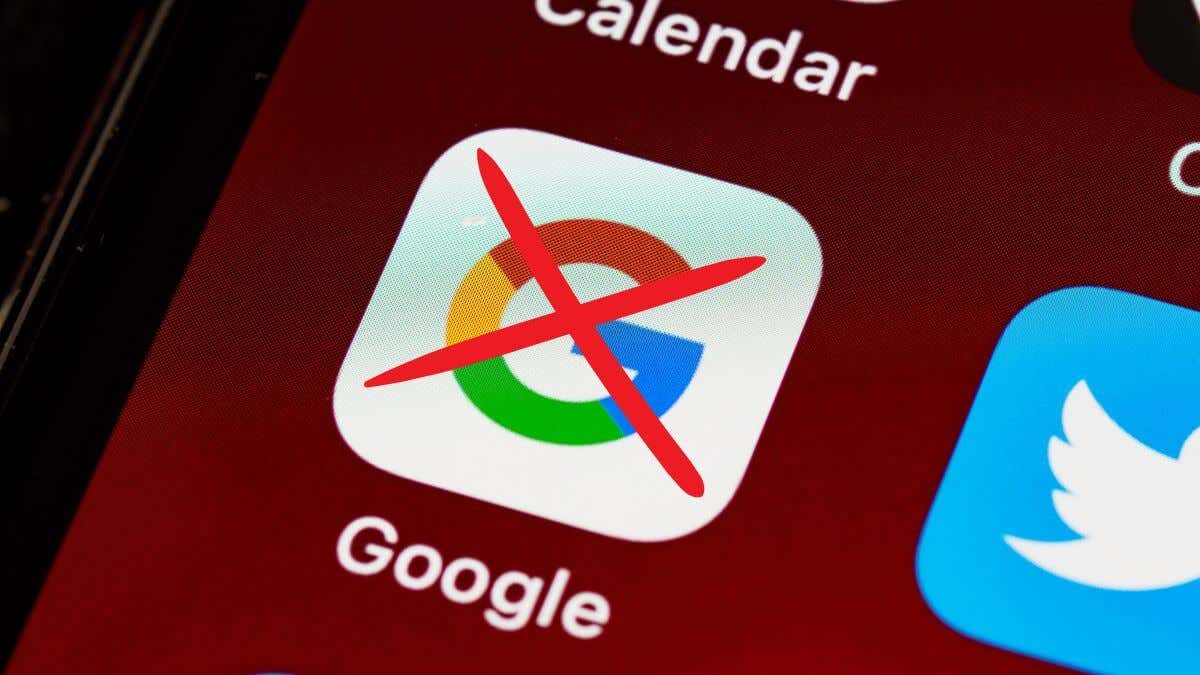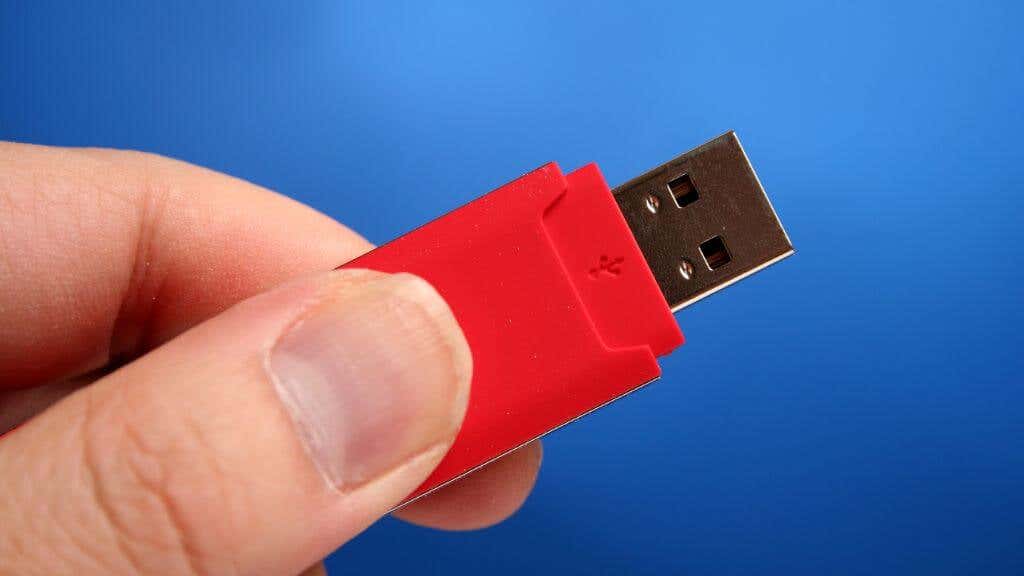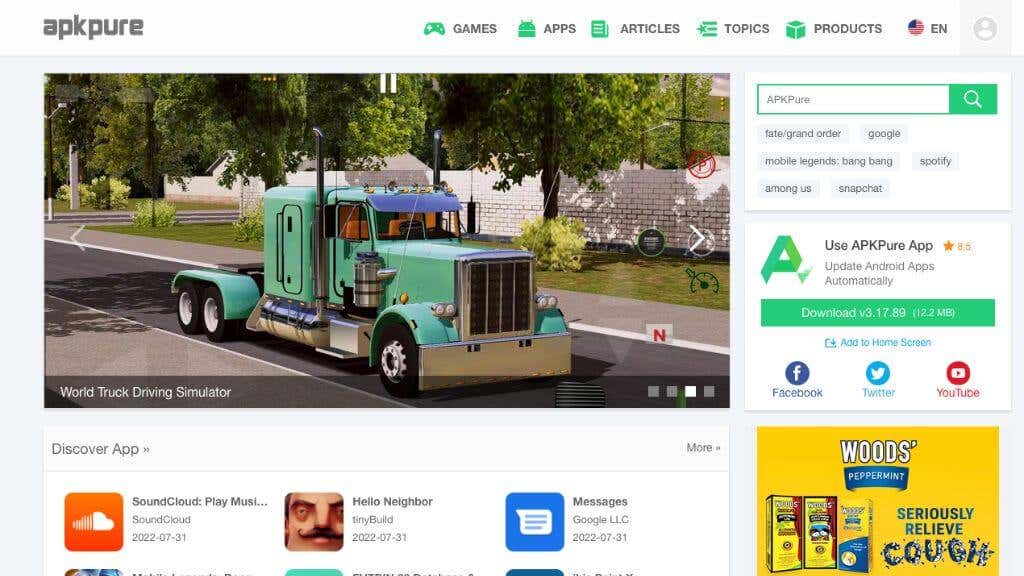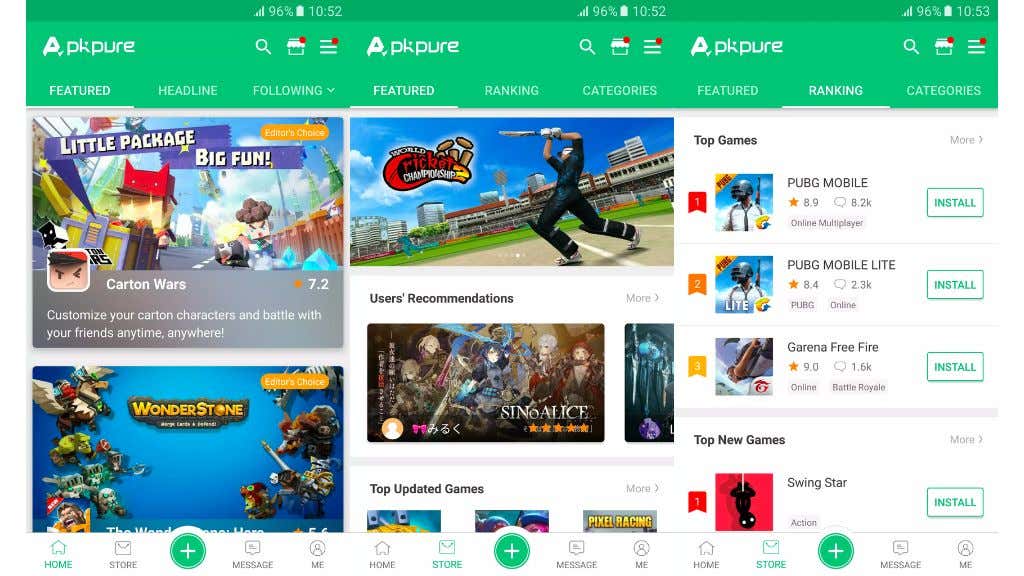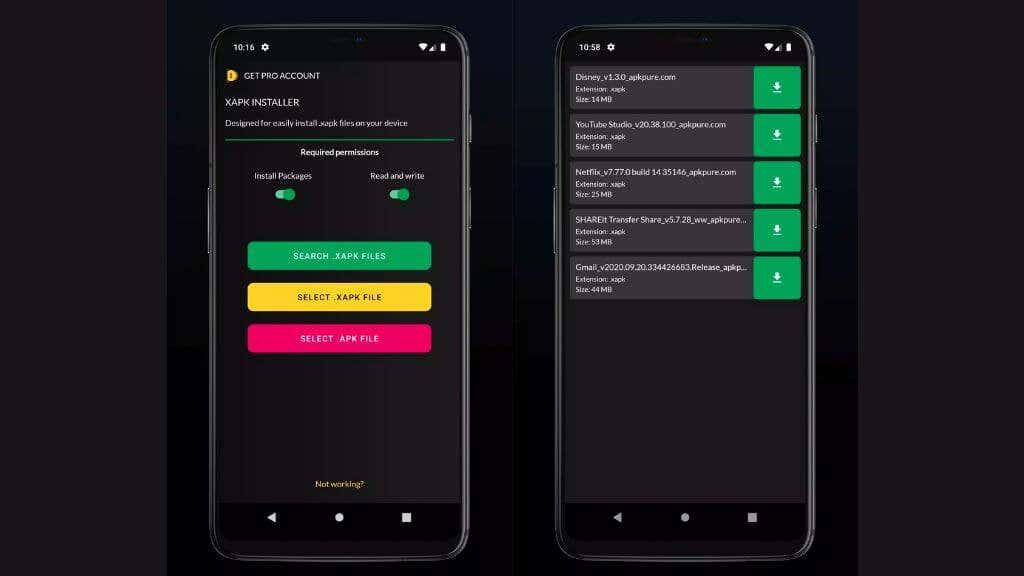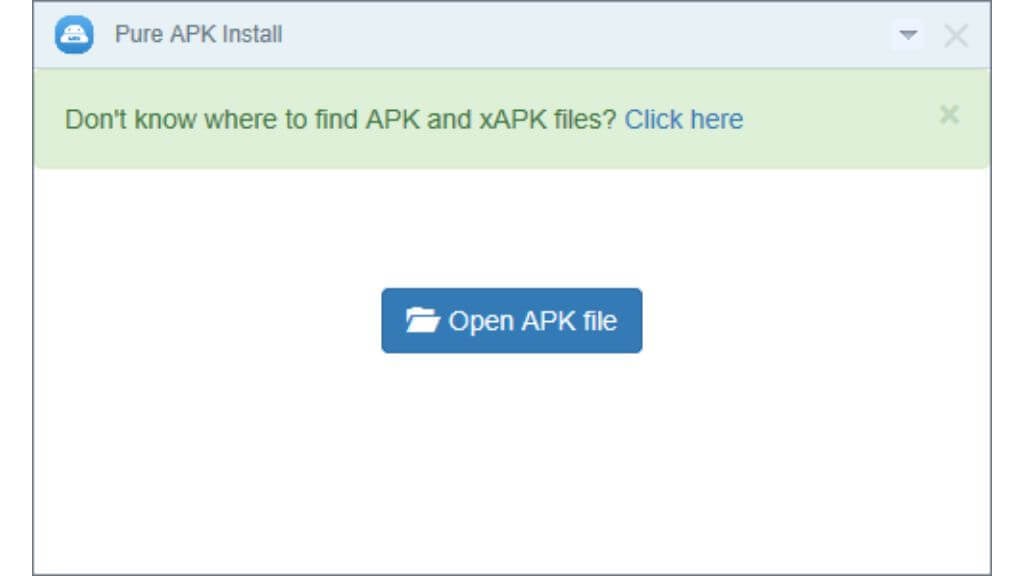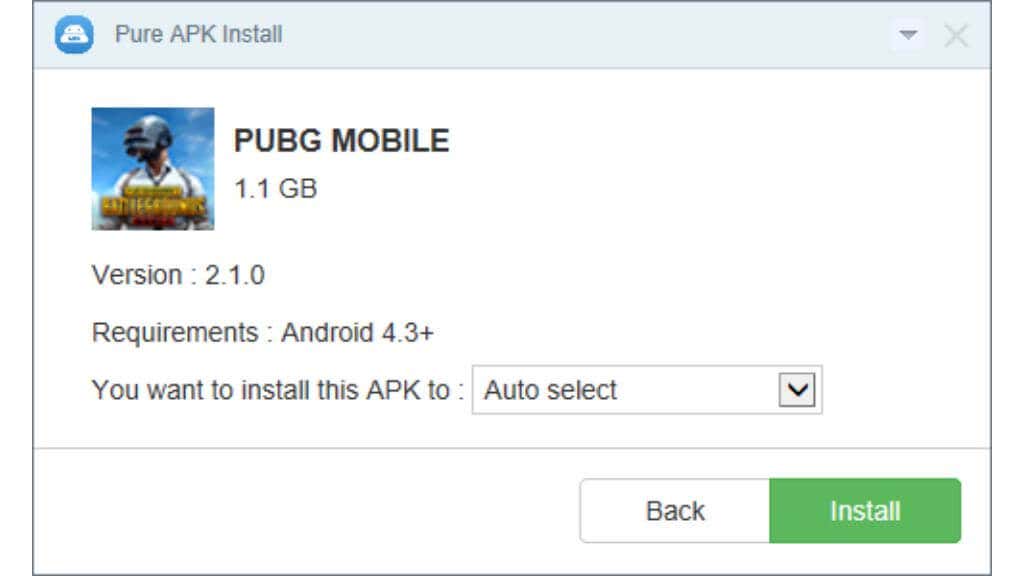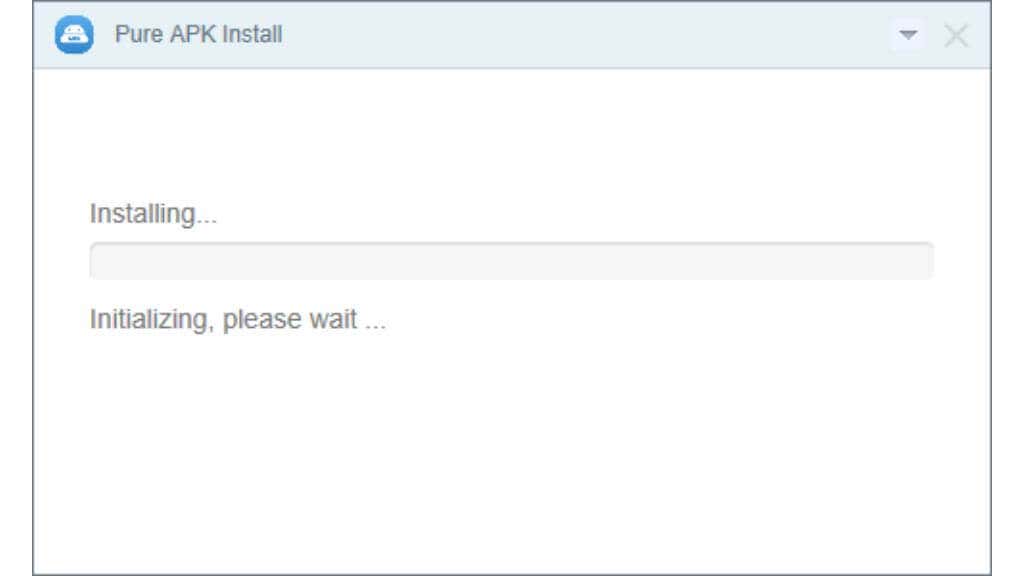You can download XAPK files the same way you’d download an APK file, but if you try to install one, you’ll run into errors. We’ll explain what XAPK files are, how they differ from regular APKs, and how you can install them on your handset using one of the tutorials below.
A Recap on APK Files and Sideloading
The vast majority of Android operating system users get their apps through the Google Play apps store. Installing an application is as easy as tapping a button and waiting for an app to download before you open it. What’s happening in the background is that the app store is downloading and executing a file with the .apk file extension. APK is short for Android Package Kit and is similar in function to installer packages on Windows and macOS. Unlike iOS and iPhone, Android is an open platform. You can download and install APK files from any source you like. This is a practice known as sideloading, and it’s simple to perform on a typical Android device. All you have to do is enable the installation of apps from unknown sources, download the APK, and then tap on it to run it through the package installer. Sideloading a package file can be dangerous since apps of unknown origin can have malware. Still, it’s broadly a low-risk practice if you’re sensible about it and have an excellent Android antivirus package.
The Limits of APK Files
APK has one significant limitation. If you want to have your app approved for listing on the Google Play Store, it must be no larger than 100MB. This is relatively tiny by modern standards, but with compression, most current apps manage to fit into this size. Alternatively, the base app can simply download additional resources once installed on your phone. “But wait,” you might say, “when I download a game like PUBG Mobile, it’s much larger than 100MB!”. That’s true, and this is because Google allows developers to bundle two expansion files of up to 2GB each after compression. The APK file still has a file size of 100MB, and the alternative ABB file type that the Play Store supports tops out at a slightly larger 150MB. This is no issue if you’re getting apps from the Play Store since Google hosts those large expansion files and automates their integration into the app. However, if you’re pulling the APK file from a third-party source, those expansion files aren’t part of the deal, which is where XAPK files come into the picture.
How XAPK Files Solve the Size Problem
An XAPK file is just an archive that contains the APK, the OBB files that contain additional assets, and any other files the app needs to complete. When you go to a third-party app source such as APKpure, you’ll see that a game such as PUBG Mobile is served as a single XAPK app bundle. If you download the XAPK file, you have the resources you need to install and run the app with no additional uploads. That excludes minor updates that games such as PUBG need to download to allow for online play.
Finding and Downloading XAPK Files
The first step in using an XAPK file is downloading it. We’ve already mentioned APKPure as a third-party source of apps, but you can find many sites that offer such downloads. You can’t choose to get the XAPK version of an app in particular. If an app has additional data that exceeds what will fit an APK, it will be available as an XAPK. You should practice caution when downloading an APK or an XAPK file. It may even be a good idea to load the app using an Android emulator on your PC before installing it on your phone.
Installing an XAPK File
Installing an APK file is usually as easy as tapping it in your file management app and then approving the required installation permissions. Trying to do the same thing with an XAPK file will only result in an error. There are several ways to install XAPK files on your device, but we’ll only cover the most popular ones.
Using the
APKPure App
APKPure offers an Android app that automates the installation of XAPK files. It will work with any valid XAPK file. The XAPK Installer app scans and previews all APK and XAPK files on your phone, regardless of whether they are on your phone’s internal storage or an SD card. You can also use this app to browse and download APK and XAPK files from APKPure.
Open XAPK File With Installer
The APK Pure XAPK Installer isn’t on the Google Play Store. This isn’t a huge issue since you’re probably comfortable with sideloading if you want to install XAPK files in the first place. However, there are XAPK installer apps in the Google Play Store, such as MTV Mobile’s XAPK Installer. You can’t use this app to find XAPK files, but once you have it downloaded, you can install it.
Installing From a Windows PC
One great advantage of XAPK files is that it makes it easy to deploy an app to multiple devices without repeatedly downloading it. Pure APK Install for Windows makes it possible to install apps to any Android device with USB debugging. Check out our Android USB Debugging Guide for specific instructions on activating this feature. Now you need to wait for the installation to complete. How long this takes depends on how large the files are and whether your phone has a fast USB 3 connection or uses a slower standard like USB 2. After the installation completes, disconnect your device. You should see the app among your other apps. Run a virus scan with an Android antivirus app. Then run your new app to see if it works correctly. If you are happy with the installation, disable USB debugging mode since it’s not a good idea to leave it on for security reasons.
Installing XAPK Apps Manually
So you have an XAPK file on your phone, but you don’t want to use an app of any kind to install it. There is a way to do this. Depending on the app’s details, this manual method isn’t guaranteed to work every time, but you can try it anyway.
- Use your file explorer to rename the .xapk file extension to .zip. Try to open the file. There should be an archive utility that came with your phone. If not, look on the Play Store for an app that can uncompress ZIP files.
- The unzipped folder should contain the APK file and an Android folder. Inside this folder, there should be yet another folder. Copy that folder to Internal Storage > Android > OBB.
- This is where the app expects to find its app data files. Once you’ve copied the files, complete the APK installation as you would any other. You may have to approve the installation of apps from unknown sources.
- The app should install as usual and delete the field you copied over when it’s done. Don’t forget to delete the unzipped files and the original XAPK if you no longer need them.
NOTE: Android 11 and Higher Problems
If you’re on Android 11 or up, you may have issues copying anything into the OBB folder. Try using the Google Files app or the file manager with your phone. Many users seem to have success with this. XAPK installers may also have issues on new versions of Android, in which case this manual method may be your only option.
